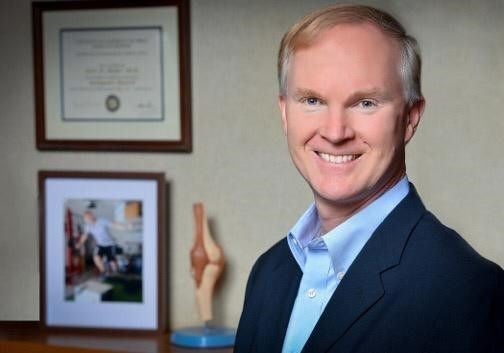
The patients are taking part in CartiHeal’s FDA IDE randomized and controlled study, which aims to show superiority of the Agili-C cartilage regeneration implant over the current standard of care: microfracture and debridement.
CartiHeal’s novel Agili-C implant is a proprietary scaffold composed of natural biomaterial – Aragonite. The implant promotes regeneration of the articular cartilage and the subchondral bone, simultaneously.
CartiHeal’s novel Agili-C implant is a proprietary scaffold composed of natural biomaterial – Aragonite. The implant promotes regeneration of the articular cartilage and the subchondral bone, simultaneously.
Agili-C is a new implant designed to help patients with knee-cartilage defects to regenerate their own healthy cartilage and its underlying subchondral bone. Dr. Hacker is one of 15 principal investigators in the United States participating in this Pivotal study.
“I’ve been waiting to participate in a study like this, which allows me to enroll and treat a wide variety of patients that I often see in my clinic, for some time. My first four patients enrolled into the study provide a great example to the uniqueness of this important study. The first case was a 56 year old man with a 6cm₂ lesion on his medial femoral condyle and moderate osteoarthritis. The second case was a 48 year old man with a 4.5cm₂ lesion on his lateral femoral condyle and mild osteoarthritis with previous ACL reconstruction and partial meniscectomy. The third case was a 46 year old man with moderate osteoarthritis and a 4cm₂ chondral lesion on his medial femoral condyle that was treated in the past with microfracture, but continued to be symptomatic. The fourth case was a 32 year old man with 2 large lesions on his trochlea and the medial femoral condyle, with a total lesions size of 7cm₂, where a previous autologous osteochondral transplantation failed,” said Dr. Hacker.
“I believe that these kinds of patients have been waiting a long time for a viable treatment option for their painful cartilage defect. They will greatly benefit from this technology, if the study meets its endpoint. As a surgeon I liked the simplicity of the implantation procedure and the easy-to-use surgical toolset. It takes only a few minutes to place the Agili-C™ implant. I’ve already identified additional patients that may be enrolled in the upcoming weeks,” concluded Dr. Hacker.
CartiHeal founder and CEO Nir Altschuler states: “We are excited that Dr. Hacker has elected to take part in our Pivotal study. Dr. Hacker brings vast experience from his previous clinical studies and we look forward to continue working with him. Over 180 patients have already been enrolled into the study and we are extremely pleased with the fast enrollment rate. We believe that this is a positive sign of trust in the study that we are conducting.”
Source: Company Press Release





